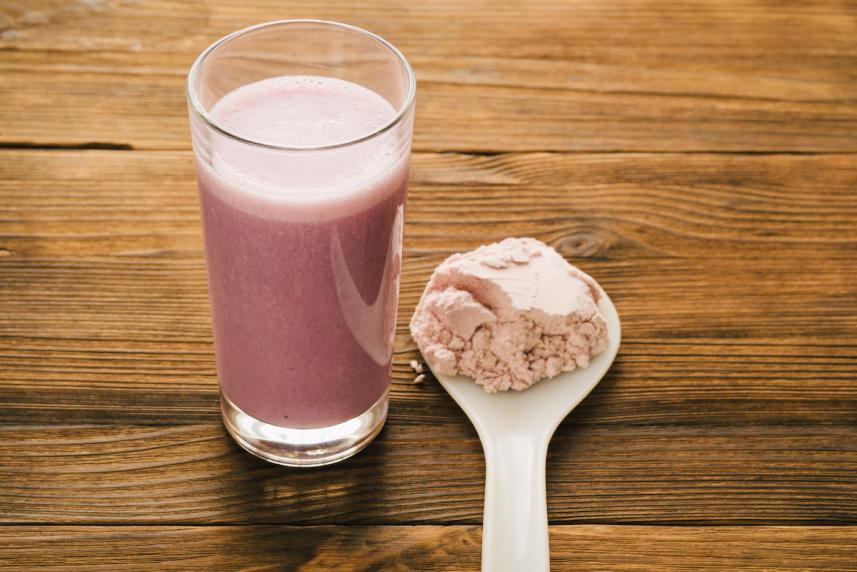Is protein powder good for you?
A nutritionist gives the final say on whether you should be buying—or avoiding—the popular health supplement.

Ever heard a friend talking about protein shakes—or seen those giant tubs of protein powder at the store—and thought: Should I be drinking that stuff, too?
What are they? Protein powder is considered a dietary supplement (just like multivitamins). The most common sources of protein used in them are dairy (whey or casein), egg, and soy.
Can they help? For years, protein powder was primarily used by bodybuilders. Athletes need more protein than most people, and it can help repair muscles after workouts—but extra protein doesn’t add extra muscle. For the rest of us, we can easily meet our protein needs through food, and most Americans get more than enough. But the perk of this essential nutrient is its ability to quell appetite. Adding a scoop of protein powder to a fruit smoothie adds staying power, so you won’t be hungry again as quickly. And that can be useful to a lot of people, especially if you’re trying to lose weight.
Are there any drawbacks? Protein powder can be expensive, easily costing $1 per scoop for the basic ones and much more for the fancier versions. Most people don’t need extra protein, so it’s probably not necessary. Plus, some contain artificial sweeteners and the powders can have a gritty texture.
Which one should you pick? If you’re adding it to water, you’ll want to pick a flavored powder. Otherwise, stick to plain powders to avoid added sweeteners (both regular and artificial) and extra calories.
What about kids? Like adults, they can easily meet their protein quota from food, even if they’re not huge meat-eaters. But if they like it, adding a scoop of protein powder to a morning shake is okay, too. Just be sure to avoid powders with added herbs, vitamins, minerals, and other bells and whistles.
If you want to save money but still add some staying power to smoothies, use naturally protein-rich milk and yogurt. Or you can add a scoop of non-fat dried milk powder, which contains two to three grams of protein (and 94 milligrams of calcium!) per tablespoon.
Are you a fan of protein powder?


